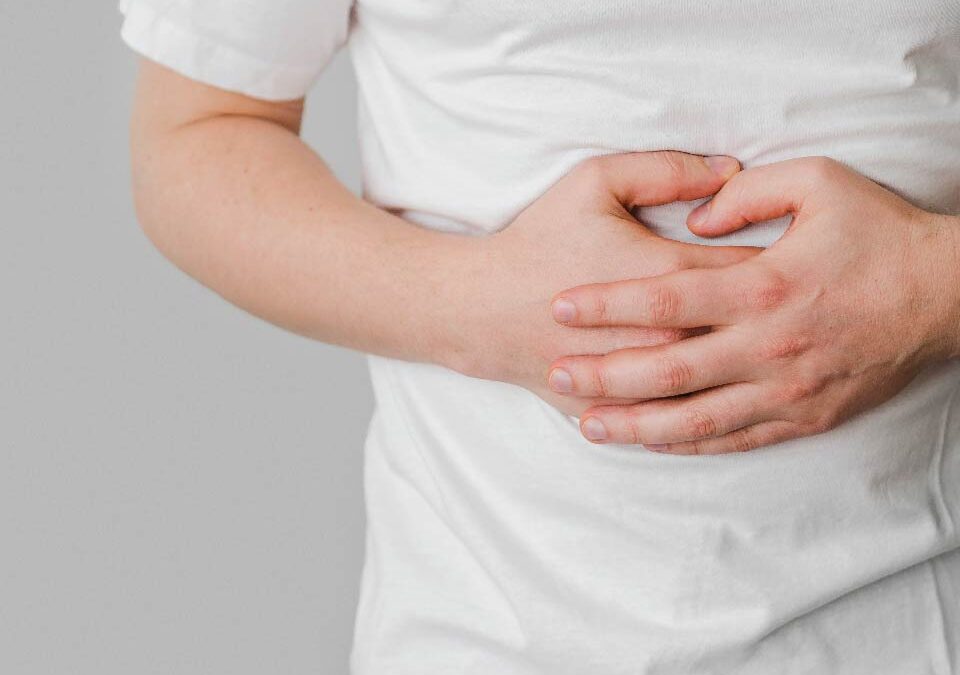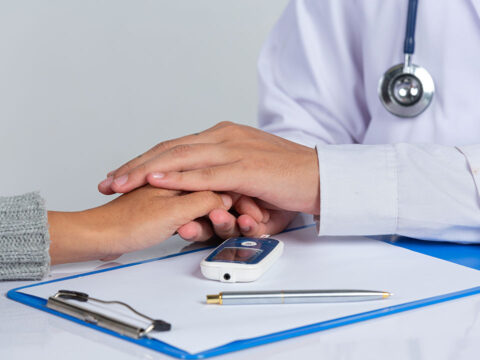
Mastopathy And Diabetes: Are They Linked?
March 24, 2022
Insulin Resistance and Severe Insulin Resistance: What’s The Difference?
March 25, 2022Coeliac disease is a lifelong health condition in which your immune system reacts to gluten and causes bowel inflammation and damage. In this disease, your body becomes intolerant to gluten products.
Coeliac disease and diabetes are also closely related. Type 1 diabetes and coeliac disease are both autoimmune diseases. Therefore, they can occur together. In fact, it has been found that 5 per cent of people with type 1 diabetes have coeliac disease.
People with type 2 diabetes can also have coeliac disease. However, these two conditions are not related. Therefore, if you have type 2 diabetes, it does not mean that you are at risk of developing coeliac disease.
Impact Of Coeliac Disease On Diabetes
- Coeliac disease and type 1 diabetes are both autoimmune disorders. So, they share a similar genetic profile.
- Most people with type 1 diabetes have coeliac disease. Therefore, they should regularly screen themselves for the condition.
- Coeliac disease and type 1 diabetes share many signs and symptoms, such as abdominal gas, bloating, weight loss, etc., often resulting in coeliac disease getting overlooked.
- Coeliac disease, if left untreated, can cause irregular blood glucose levels in the body.
- Untreated coeliac disease can also cause malabsorption of nutrients and lead to low blood sugar levels or hypoglycemia in the body.
How To Know If You Have Coeliac Disease?
Following are the common signs and symptoms of coeliac disease. However, you must remember that the symptoms of coeliac disease vary from person to person.
- diarrhoea
- constipation
- abnormal weight loss
- flatulence and bloating
- fatigue
- nausea
- anaemia
- mouth ulcers
- fluctuating blood sugar levels
How To Diagnose Coeliac Disease?
If your doctor suspects coeliac disease, they will prescribe a blood test to screen for it. This test will indicate the levels of antibodies in your blood. If the test result is positive, your doctor will then prescribe a small bowel biopsy to confirm the condition.
What Is The Treatment Of Coeliac Disease?

Coeliac disease is not a food allergy that can be treated with medicines. It is an autoimmune disease that results in intolerance to gluten. The only treatment option for coeliac disease is to cut gluten products completely out of your diet.
Where Can You Find Gluten?
Gluten is a protein found in grains such as wheat, rye, barley and oats. Any ingredient derived from these grains also contains gluten. Therefore, you must avoid all these products.
Even small amounts of gluten can damage your bowel wall. Therefore, it is important to remove all traces of gluten from your diet. You should not eat any product prepared or cooked with gluten products. Avoid even naturally-gluten products such as gram or urad flour prepared in the same factory as wheat, barley, or rye, as they may contain traces of gluten.
What Can You Eat In Coeliac Disease?
You can eat naturally gluten-free foods, foods prepared with gluten-free substitutes or processed foods with no-gluten labels.
There are many naturally gluten-free food options, such as vegetables, fruits, meat, fish, cheese, milk, potatoes, eggs, lentils and pulses for people with coeliac disease. Nowadays, many gluten-free substitutes, such as gluten-free bread, are also easily available.
Healthy Eating Guidelines For People With Both Coeliac Disease And Diabetes
If you have both coeliac disease and diabetes, you must eat foods:
- containing gluten-free carbohydrates
- having a low glycemic index
- containing low levels of saturated fat
- rich in calcium and iron
- packed with dietary fibres
It is also recommended to see a dietitian while managing both coeliac disease and diabetes. They can help design a better eating plan for you.
What Are The Health Risks Of Not Following A Gluten-Free Diet?
If you have coeliac disease and you do not follow a gluten-free diet, you are at a higher risk of developing other medical conditions. Intestinal damage caused by gluten can lead to insufficient absorption of nutrients from the food, elevating the risk of infertility, osteoporosis, cancer and many other health problems.
Furthermore, untreated coeliac disease will also make it difficult for you to manage your blood glucose levels.
On A Final Note
Coeliac disease causes intolerance to gluten and, if left untreated, can fluctuate your blood glucose levels. Therefore, treating coeliac disease is extremely important, especially if you have diabetes.
The only treatment for coeliac disease is to eliminate gluten products from the diet. Nowadays, there are many options available for people with gluten intolerance. Therefore, the management of the disease has become easier than before.
References
- https://www.ndss.com.au/about-diabetes/resources/find-a-resource/coeliac-disease-fact-sheet/
- https://www.diabetes.org.uk/guide-to-diabetes/enjoy-food/eating-with-diabetes/managing-other-medical-conditions/coeliac-disease-diabetes
- https://celiac.org/about-celiac-disease/related-conditions/diabetes-and-celiac-disease/
- https://gluten.org/2019/10/17/diabetes-and-celiac-disease/
- https://www.medicalnewstoday.com/articles/326199
- https://www.healthline.com/health/diabetes-and-gluten
- https://www.ncbi.nlm.nih.gov/pmc/articles/PMC4156157/
- https://www.coeliac.org.uk/information-and-support/coeliac-disease/conditions-linked-to-coeliac-disease/type-1-diabetes/
- https://www.beyondceliac.org/celiac-disease/related-conditions/type-1-diabetes/




